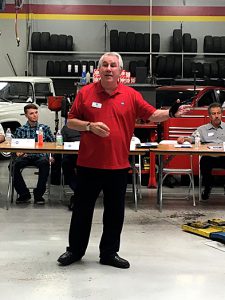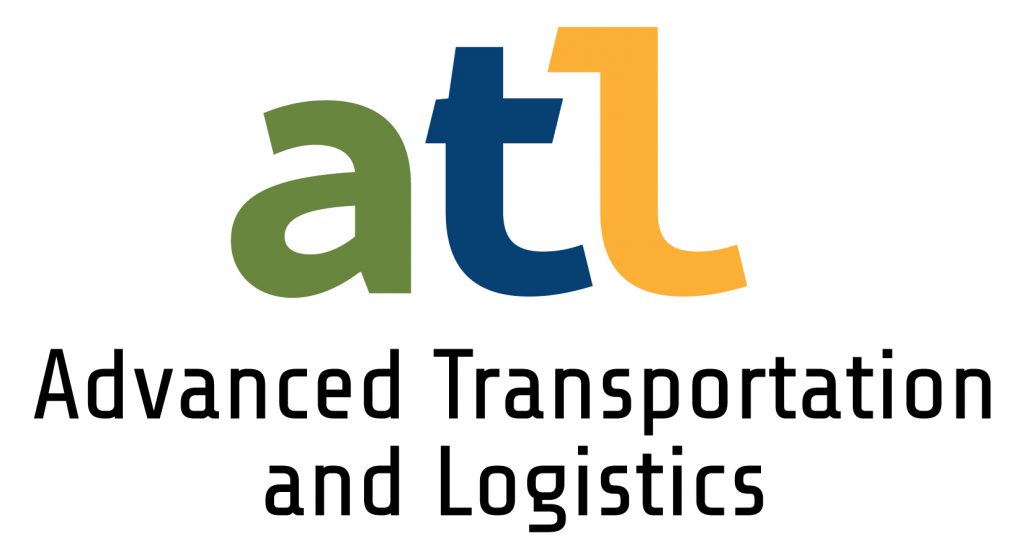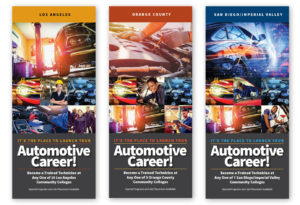
Walt Commans leads a discussion at the roundtable event for community college faculty and independent repair shop owners.
With more than 40 years of experience in the auto repair industry, Walt Commans knows a problem when he sees one.
Commans, an Automotive Service Excellence (ASE) Western States Consultant and ASE Education Foundation Manager, serves as a liaison between community colleges and independent repair shop owners and saw a disconnect between the two.
“I heard over the years from the schools that they don’t know what the industry needs in terms of curriculum, and shop owners don’t feel that schools are meeting their needs in terms of what they are teaching,” he said.
The solution to this problem, Commans found, was to bring independent shop owners into community colleges earlier for informal networking events. One of those events, a roundtable discussion, was held October 28 at KARCO Specialties, an independent repair shop in Orange, California.
“Most students don’t realize that independent shop owners start out as technicians with no plans ever of becoming a shop owner,” Commans said. “They can see a career path toward becoming a business owner and realize that they don’t have to turn wrenches their whole lives if they don’t want to.”
High demand for automotive repair program graduates lead to students being swept up by traditional dealerships before the independent shop owners could even meet them, Commans said. The roundtable discussions allow students to see a new career path, and give independent shop owners the chance to start building relationships with potential hires — a win-win for everyone involved.
In partnership with Jannet Malig, CETI Deputy Sector Navigator, Commans brought this model to Southern California after successfully implementing it in Washington with Spokane Community College. He knew that to be successful, he needed to shift programming from daytime to evening hours.
“We were trying to build that relationship but found that meetings and events were mostly held during the day, and shop owners can’t leave while their businesses are open,” Commans said. “Both sides worked together to shift things to the early morning or the evening.”
Malig worked with Commans to involve all of the colleges in the LA/Orange County Region and helped coordinate college faculty attendance.
“The biggest issue independent shops have is really connecting to community colleges,” she said. “Many have relationships with one or two, but to be able to help them connect with all at the same time is the challenge.”
Commans hopes to build on the success he’s created in the region by coordinating a mini job fair in the spring. He would like to bring in 30-40 independent repair shops for an opportunity to network with students, parents, and faculty.
That might sound like a large undertaking for just one person, but Commans is not one to shy away from a challenge.
“We are looking at how we can take this to the next level and not fall into the trap of having a great program that doesn’t grow,” Commans said. “I want to replace the word ‘if” with the words ‘I can.’”


